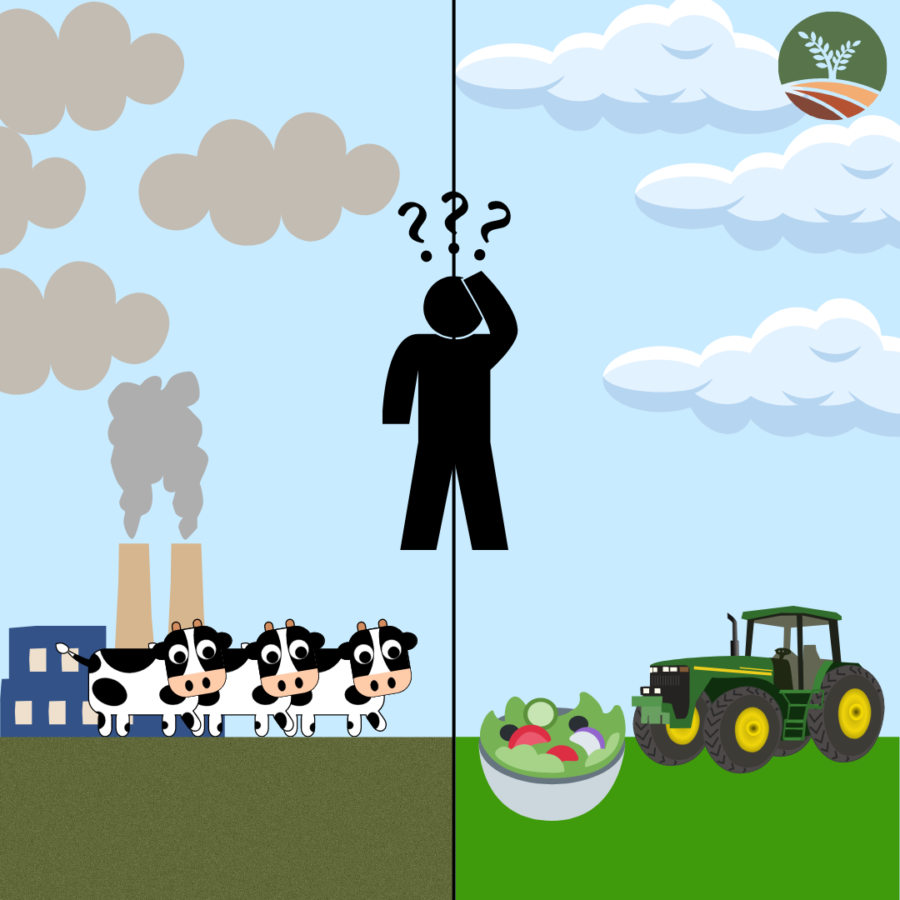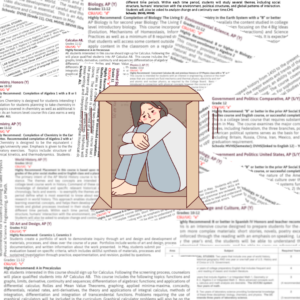Subject to Change: Questioning vegans
Srishreya (Shreya) Arunsaravanakumar
As hate toward vegetarian diets increases, it’s essential to question the effectivity of them.
April 16, 2023
Dear reader,
Recently, I was scrolling through my YouTube feed and I saw a video from YouTuber beenoftheweek with the Vegan Teacher that piqued my interest. For those of you who haven’t been on TikTok’s violent side yet, The Vegan Teacher is an infamous influencer that’s known for shoving the vegan diet down people’s throats. She’s bashed multiple internet influencers for consuming products that were derived from an animal. Reading the comment section, I saw many comments (rightfully) calling out the Vegan Teacher for forcing her opinion on others while striking a blow at vegans in general. This leads to today’s question: why are vegans hated by the internet so much?
I’m vegetarian. I can feel your eyes rolling back to your skull, but don’t go just yet! I’m not another crazy vegan convincing you to join the veganism cult, so stick around until the end to see what I have to say.
I’ve been vegetarian my entire life – I consume dairy products but don’t consume meat or seafood. Every time I mention the circumstances of my diet to a friend, “That sucks! You’re missing out,” is usually along the lines of what I hear. I’ve never felt like I’ve missed out on anything by being vegetarian. As a South Indian, I’ve had plenty of options to choose from within South Indian cuisine. I choose to be a vegetarian. It’s not because of my religion or my family (in fact, I’m the only vegetarian in my entire family). Eating meat simply isn’t appealing to me and that’s how I roll. I’m not vegan, but I face a lot of the same backlash for my diet since it excludes meat consumption.
Veganism is a lifestyle choice that excludes the consumption of animal products in the diet and avoids the use of animal products. This diet has been gaining significant traction in recent years. There are multiple types of veganism: raw vegan, Lacto-vegetarian, Ovo-vegetarian and pescatarian are some common examples. Beyond the trend, veganism is a conscious decision driven by considerations of animal welfare, environmental sustainability and personal health. Animal welfare is a crucial component of the vegan movement.
For many vegans, choosing this diet is a stance against the inhumane practices of factory farming and animal exploitation. They are helping to reduce the demand for animal products and contributing to a more humane world. Personally, environmental sustainability has never been a reason for my diet but for many, it is another compelling reason for following veganism. Within the vegan community, it is widely acknowledged that animal agriculture is a significant contributor to greenhouse gas emissions and deforestation.
Aside from the environmental aspect, there are many personal reasons for being vegan. Many may have dietary restrictions or health conditions that prohibit meat consumption. From an outside perspective, many people assume vegans to be “unhealthy” since they don’t eat animal-based protein. But a vegan diet is abundant in nutrients and low in saturated fats, which can reduce the risk of chronic conditions such as heart disease, stroke and type 2 diabetes. The essential macromolecules can be derived from a variety of cereals, pulses, fruits and vegetables. Furthermore, research conducted on the relationship between BMI and diet has indicated that vegans tend to have a lower body mass index (BMI) than those who consume animal products. A diet that can lower BMI can be beneficial for many Americans, especially since 41.9% of Americans are obese or overweight.
But there are also many cons to being vegan. For many, the vegan diet is expensive. In fact, it’s considered to be a diet that comes from privilege. In communities similar to San Ramon’s, access to fresh fruits and vegetables are plentiful. From filled grocery stores to the City Center’s Farmers’ Market, there are more opportunities to change diets here than when compared to food deserts in rural areas of America.
I agree that the diet is not sustainable for those who cannot afford fresh fruits and vegetables for every meal. Many might not have access to the sources that supplement the vegan diet. In fact, there are 6,500 food deserts in the U.S. alone. Additionally, a study noted that areas with high poverty rates and higher percentages of minorities are more likely to be food deserts. Some people have to work multiple jobs or have other responsibilities outside their work and may have to resort to takeout on a regular basis, limiting vegan options for them.
Even though veganism is looked up to for its environmental sustainability, there are still some concerns that come with veganism. While livestock and fisheries produce 30% of greenhouse gas emissions, crops that are grown for human consumption still produce 21% of greenhouse emissions. Additionally, global emissions from transportation, processing, packaging and retail of the food add another 18%. This does not mean that vegan foods are worse for the environment than non-vegan produce; however, it’s good to note that vegan foods still impact the environment.
It’s not just vegans that face hatred on the internet. Arrows are shot in the opposite direction toward non-vegans as well. Toxic vegan influencers on the internet such as The Vegan Teacher portray negative depictions of vegans to meat eaters. It is because a minority of the community chooses to force their ideas on others that I honestly cannot blame the internet for being so angry at vegans.
Yes, there are multiple arguments for and against the vegan diet – as there are with ANY diet. I’m here to tell you that anyone can eat anything they want. At the end of the day, does it really matter what another person eats when it doesn’t affect our personal well-being?
Yours Truly,
Shreya Arun





